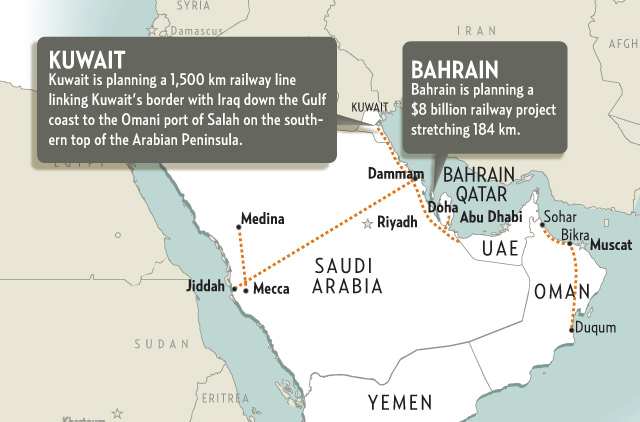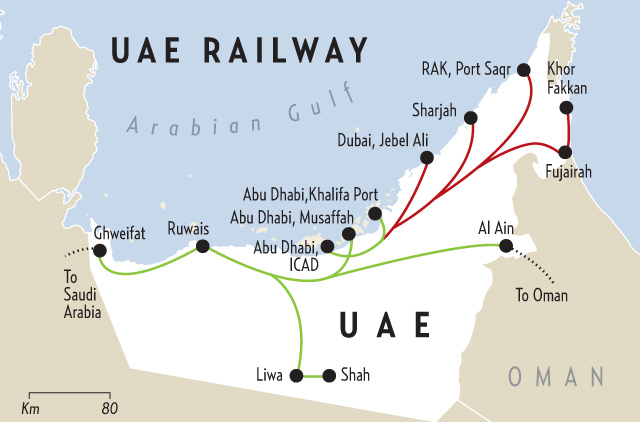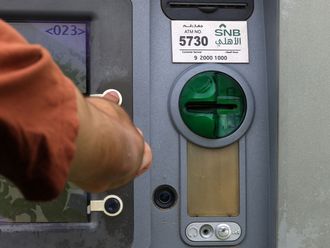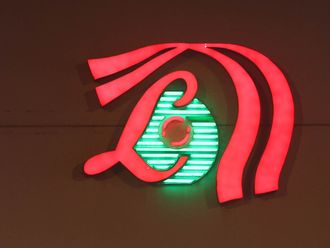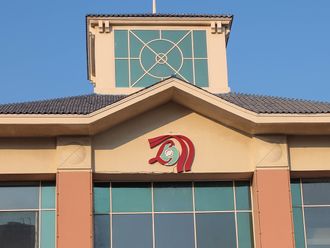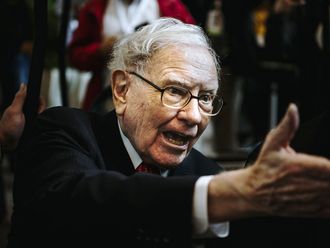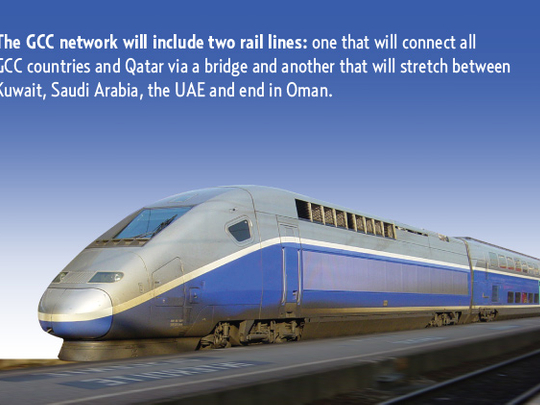
Dubai: Transportation projects in the UAE, Saudi Arabia, Qatar and Kuwait worth an estimated $170 billion will change the way trade is done. Railway projects alone will be worth an investment of $108 billion, according to Satish Khanna, General Manager of Al Fajer Information and Services, the organisers of the GulfRail 2012, an exhibition and conference set to take place from April 17 to 19, 2012.
An $11 billion UAE railway network that will be 1,500km long is scheduled to roll out over the next 7-8 years.
Abu Dhabi has also revealed its plans for a new rail network, called the Union Railway, that would serve Al Ain. The construction of the Union Railway is about to start this year and will cost between Dh30 billion and Dh40 billion.
"Abu Dhabi has joined the fray with a 131km metro rail system which is expected to partially start in 2015," Khanna said.
Across the region, a GCC network will include one rail line of 1,970 km connecting all GCC countries and Qatar via a bridge. The second line of 1,984 km will stretch between Kuwait, Saudi Arabia, the UAE and Oman.
The broader perspective would be for the network to extend to Jordan and Syria, linking the Gulf with Europe and Asia via Turkey, Khanna said.
V.G. Ramakrishnan, Senior Director, Automotive and Transportation Practice, South Asia and Middle East at Frost & Sullivan, told Gulf News that an efficient railway network in the UAE and the GCC region will substantially change the way the transportation of goods and people takes place.
"There will be an impact on the transportation of goods from one country to the other," he said. "Sixty per cent of the goods that enter the UAE are re-exported to other nations. What I can see is that with a well established railway system, goods will be transported more efficiently, reducing the congestion in airports in some places of the Gulf."
Ramakrishnan said that the way trade works in the region will also change, adding activity at the ports. "We will see new trade lines," he said.
At the same time, transportation of people will become more efficient, accessible and cheaper. "Right now, everybody flies," he said. "But when long distance trains come up, people will be able to commute to neighbouring countries. People will be able to live in Dubai and work in Abu Dhabi," he said. Harald Muller, CEO of IMAG (Internationaler Messe und Ausstellungsdienst GmbH), which is also organising GulfRail 2012 jointly with Al Fajer Information and Services, told Gulf News that a unified railway system for the GCC is not as far fetched as people think it is. "However, we're still talking about decades because these investments and the decision making process takes a very long time and you're going through the lands of many people," Muller said.
"There is a real revival of rail and freight, so these plans are real and in the next 10 or 20 years you'll expect to see these projects being carried out."
- Dh30b construction cost of Union Railway
- 1,970 km of track connecting all of the GCC countries
Getting on track
Saudi Arabia is spending $25 billion (Dh91 billion) on its rail network adding 3,900 km of track through three major projects. Saudi Arabia has already begun work on four different railway projects. Focus will be on 1,000 km land bridge, East-West Railway project, running from Jeddah and Dammam and bridging gap between the Red Sea and Arabian Gulf.
The project will consist of two tracks, the first of which will cover 449 km and handle only passengers while the second will stretch over 556 km and will be devoted exclusively to freight. Upon completion, it is estimated to transport more than 300 million passengers per year and one billion tons per year.
Saudi Rail Organisation recently issued tenders for the first contract on the 500 km Haramain high speed rail link between Makkah and Madinah. The $7 billion project aims to provide transport for Umrah and Haj pilgrims.
Oman has appointed consultants to conduct a feasibility study of a 200 km railway network that will begin in Sohar connecting Bikra in north Muscat and Duqum. Kuwait is also looking into a 1,500 km railway that would link the Iraqi border with the Omani port of Salah on the southern top of the Arabian Peninsula. Bahrain is planning a $8 billion railway project stretching 184 km.
- Source: GulfRail 2012
Do you think a cross-nation rail service would ease tension on other infrastructures, like roads? Should the government look at fast tracking this project? Is this something you would use?


